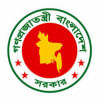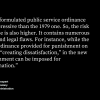A blueprint for public sector reforms

The strategic objectives of the Public Administration Reform Commission in Bangladesh should be designed to improve the public sector's transparency, efficiency, accountability, and responsiveness. The overarching goal should be to create a public administration that can meet the evolving needs of the citizens and contribute to their socio-economic development. However, implementing the objectives warrants a cautious approach by the reform commission.
One of the main strategic objectives should be simplifying the bureaucratic procedures to reduce delays in decision-making, service delivery, and resource allocation. Measures for efficient governance can be introduced to enhance transparency, while public servants can be made accountable through periodic monitoring and evaluation by elected people's representatives. Also, local governments should be delegated more authority and resources to improve the delivery of services at the grassroots level so that they can address the needs of local communities more effectively.
The commission should also look into reforming the recruitment and career advancement process so that public servants are selected and promoted purely based on merit, qualifications, and performance. Besides, they should be provided with continuous opportunities for professional development to enhance their skills, knowledge, and effectiveness focusing on leadership building, strategic thinking, policy analysis, and service delivery. Promoting a culture of professionalism, ethical behaviour, and integrity within the public service through properly enforced codes of conduct and regular ethics training is a must.
Above and beyond, modernising the public administration should be prioritised by leveraging technologies like artificial intelligence and machine learning to encourage innovation and the adoption of best practices to respond more effectively to new challenges, including environmental, economic, and social changes. Reforms that improve revenue collection, resource allocation, and fiscal management should be introduced to ensure long-term financial stability and efficiency in public sector spending.
In addition, public service's capacity must be enhanced to respond to disasters, adapt to climate change, and integrate resilience into governance practices. Strengthening the institutional capacity to manage crises—including health emergencies and socio-political disruptions—will ensure continued service delivery in times of need.
Another objective should be to improve coordination and collaboration among different ministries, agencies, and departments to avoid overlapping efforts and ensure the coherence of policy implementation. Public service reforms must be integrated with our broader development goals and policies, such as the Sustainable Development Goals (SDGs).
Lastly, reforming the salary structures and benefit packages to make public sector jobs more competitive, thereby attracting and retaining skilled professionals. Policies that ensure a healthy work-life balance, improving job satisfaction and motivation among public servants, should be promoted.
However, the formulation and implementation of these objectives can be challenging. One crucial barrier is the entrenched culture of corruption in many areas of public administration, continuing to affect service delivery and resource management. Corruption distorts policy implementation and creates significant obstacles to reforms. Institutions such as the Anti-Corruption Commission often lack the power or autonomy to effectively hold public servants accountable.
Also, policies aimed at decentralisation have not succeeded so far because local government institutions often lack the necessary authority, resources, and capacity to manage community issues efficiently and improve public service delivery at the grassroots level. Moreover, public sector reforms often require significant financial resources, particularly for capacity building, technology upgrades, and institutional restructuring. Budgetary constraints can, and do, limit the government's ability to fund comprehensive reforms.
In addition to these issues, public spending often does not align with priority areas, leading to inefficient resource allocation and wastage. This further complicates the implementation of reforms. Moreover, limited access to technology and the Internet, particularly in rural areas, exacerbates disparities in public service delivery and hampers the rollout of technology-driven reforms.
Past trends show that public service reform measures often lack coordination among ministries, departments, and agencies, leading to fragmentation and inconsistency in implementation. Competing priorities among stakeholders and the absence of central oversight can result in duplicated efforts or gaps in reform initiatives.
In short, the strategic objectives of public service reforms should focus on transparency, meritocracy, digital transformation, decentralisation, and inclusivity to modernise governance and improve the quality of public services. These reforms are essential for advancing Bangladesh's development goals. Addressing the existing challenges requires a comprehensive, multi-dimensional approach that includes political will, strong and impartial institutions, investment in human resources, and the integration of Industry 4.0 technologies. Although the reform process is complex, overcoming the challenges outlined above is crucial for enhancing governance and ensuring citizen satisfaction.
Dr Nasim Ahmed is additional secretary at the Public Security Division. He can be reached at [email protected].
Views expressed in this article are the author's own.
Follow The Daily Star Opinion on Facebook for the latest opinions, commentaries and analyses by experts and professionals. To contribute your article or letter to The Daily Star Opinion, see our guidelines for submission.

 For all latest news, follow The Daily Star's Google News channel.
For all latest news, follow The Daily Star's Google News channel. 










Comments